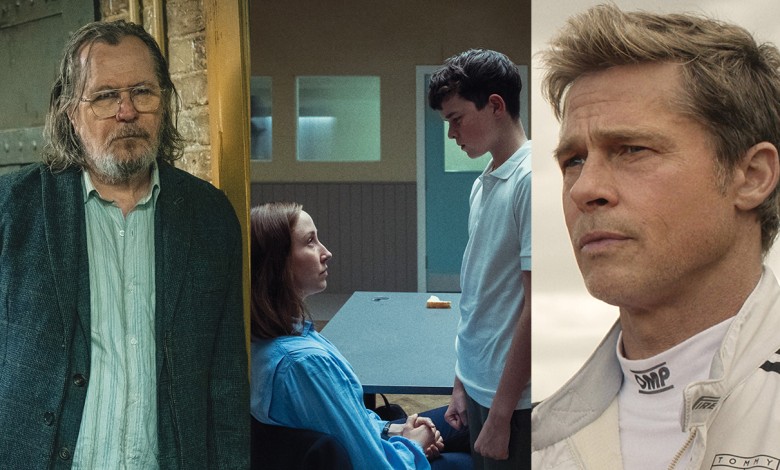Why Mediawan Leads Europe’s Independent Film and TV Scene

When Pierre-Antoine Capton founded Mediawan in 2015 alongside French telecom billionaire Xavier Niel and financier Matthieu Pigasse, he wasn’t looking to copy Hollywood. He wanted to do something Europe had never quite managed: Build a truly international, independent studio that put producers and creators first — while still playing at scale.
“The French market didn’t trust itself,” Capton says. “While French music, fashion and food exported well, our audiovisual culture didn’t.”
Already a big name in unscripted TV — his Troisième Oeil Productions was a market leader — Capton says his lightbulb moment came when he saw the international success of French playwright Florian Zeller. Despite Zeller’s acclaim (Capton produced his theater productions), financing a film adaptation of his plays in France proved difficult, ultimately leading Zeller to shoot his 2020 drama The Father in English, a decision that earned him an Oscar.
“That was proof that European culture needed a better way to express itself,” says Capton. “With the rise of the streaming platforms, we were convinced this new environment called for the emergence of new, more agile and more international independent players, capable of bringing together the best talent and supporting them by giving them the means to grow [both] locally and internationally.”
On Dec. 15, 2015, Capton launched Mediawan with Niel and Pigasse, setting up the operation as a special-purpose acquisition company and taking it public in April 2016, raising more than $300 million to invest in buying media companies.

Mediawan set up a joint venture with French animated group Zag in 2024, which produces and manages the global children’s franchise Miraculous: Tales of Ladybug.
Courtesy of Mediawan
In slightly less than a decade, Mediawan snatched up dozens of production and distribution outfits across Europe and the world. It now controls some 80 companies. The crown-jewel partners include Brad Pitt’s Plan B (producers of F1, Beetlejuice Beetlejuice and Netflix’s Adolescence); British-Australian drama champ See-Saw (Slow Horses, The King’s Speech); London’s Drama Republic (One Day); documentary specialist Misfits Entertainment (Super/Man: The Christopher Reeve Story); and leading German producer-distributor Leonine Studios. Mediawan has signed joint venture deals with the likes of LeBron James and Maverick Carter’s SpringHill Co. and with French animated group Zag, producers of the global children’s franchise Miraculous: Tales of Ladybug and Cat Noir.
The Mediawan group is a content machine, producing 400-plus titles annually across TV, film, animation and documentaries. Mediawan’s box office last year topped $1.2 billion, making it Europe’s No. 1 film studio and a fitting recipient of The Hollywood Reporter‘s International Producer of the Year honor.
Unlike traditional studios, Mediawan doesn’t subsume its acquisitions. It federates them, giving each company creative autonomy and financial muscle to create a network that operates more like a collective than a conglomerate.
“At Mediawan, our producers run their companies like independents,” says Elisabeth d’Arvieu, CEO of Mediawan Pictures. “But they benefit from the infrastructure, co-financing and IP support of the group. It’s talent-first—always has been. And we’ve stayed very nimble, without layers of management. It’s basically Pierre-Antoine, myself and a small group of talented executives at the group level. We talk every day or every week with our producers.”
Adds Plan B co-CEO Jeremy Kleiner: “Mediawan has created an ecosystem of synergies that have expanded our universe in a number of exciting ways. They’ve given us the capital to innovate and a broader presence in Europe, all while fully respecting our independence.”
Deputy CEO for Strategy and M&A Guillaume Izabel describes Mediawan’s dealmaking philosophy as “cherry picking — not for scale, but for fit.” He adds: “Each company joining Mediawan was chosen for a very specific reason, bringing a unique expertise or creative vision that enhances our overall content offering [to allow us] to remain agile and relevant.”
Mediawan is doubling down on European-grown content. Its new limited series adaptation of The Count of Monte Cristo, produced by its Italian subsidiary Palomar, was a global sales hit. Miraculous, the animated brand controlled by Mediawan and Zag, generates more than $400 million annually in licensing and merchandising revenue. French film producer Chi-Fou-Mi, another Mediawan subsidiary, delivered last year’s breakout Beating Hearts, the romantic drama starring Adèle Exarchopoulos and François Civil that grossed more than $36 million in France alone, and will be closing out the 2025 Venice Film Festival with Cédric Jimenez’s Dog 51, a dystopian thriller that’s drawn comparisons to Children of Men.
While most global studios are tightening belts in the face of a post-streaming-boom contraction, Mediawan is scaling up. With plenty of capital behind it — financial backers include private equity giants KKR and Atwater Capital and French banks Société Générale and MACSF — the group is aggressively financing new productions and spinning local shows into global franchises. Call My Agent!, the hit French showbiz satire produced by Mon Voisin Productions (Mediawan’s first acquisition), has been adapted for the U.K., Italy, India and Germany, with a U.S. version, set in the world of professional sports, in development with SpringHill.
It also works in reverse: When Plan B wanted to adapt the French nonfiction book The Man With a Thousand Faces, Mediawan secured the rights and aligned it with one of its French producers.
“We don’t interfere unless they ask us,” d’Arvieu explains. “We help with co-productions, IP acquisitions, talent relationships … but we let them run their own productions.”
“Within the Mediawan Group, regional independence is a core value,” adds Leonine Studios CEO Fred Kogel. “At the same time, being part of Mediawan enables us to further leverage our strengths, and we’re using their international sales team to take our own IP global.”
With streamers shifting away from global buyout to more territorial deals, leaving a big financing gap for independent producers, Mediawan has begun providing more financing itself, boosting its international sales operations and paying bigger minimum guarantees.
“Being based in Europe also gives us access to subsidies, soft money and co-production opportunities, which help in our current market,” says d’Arvieu.
“Our show Riot Women wouldn’t have happened without Mediawan,” Drama Republic’s Roanna Benn adds of the upcoming series from Happy Valley creator Sally Wainwright, which features a group of menopausal women who set up a punk-rock band. “They stepped in when others wouldn’t. They get what it means to back producers.”
Mediawan’s balance between support and independence has resulted in a rare level of loyalty.
“Over nine years, none of the talents who have joined us has left,” says d’Arvieu. “They feel respected, understood and supported.”
The studio’s producer-first model is paying off — creatively and commercially. As the global industry recalibrates after the streaming boom, Mediawan is leaning into its strengths: decentralized production, selective acquisitions and a financing strategy tailored to support risk-taking storytellers.
“I was once an independent producer myself, and I refused to sell my company three times — my independence was priceless,” says Capton. “With Mediawan, I built the company I would have dreamed of joining. It was better that way.”
This story appeared in the Aug. 20 issue of The Hollywood Reporter magazine. Click here to subscribe.
Source: Hollywoodreporter
HiCelebNews online magazine publishes interesting content every day in the movies section of the entertainment category. Follow us to read the latest news.
Related Posts
- Kevin Costner, Jake Gyllenhaal to Star in ‘Honeymoon with Harry’ for Amazon MGM (Exclusive)
- 5 Journalists Killed in Israeli Strikes on Gaza Hospital
- ‘Awards Chatter’ Pod: Janelle James on ‘Abbott Elementary,’ Sudden Fame and Deserving an Emmy
- Jesse Tyler Ferguson on Pressure He Felt With Gay Role on ‘Modern Family’: “No Way to Please” Everyone
- Why Matthew Renoir Opened a Video Store in the Streaming Era





